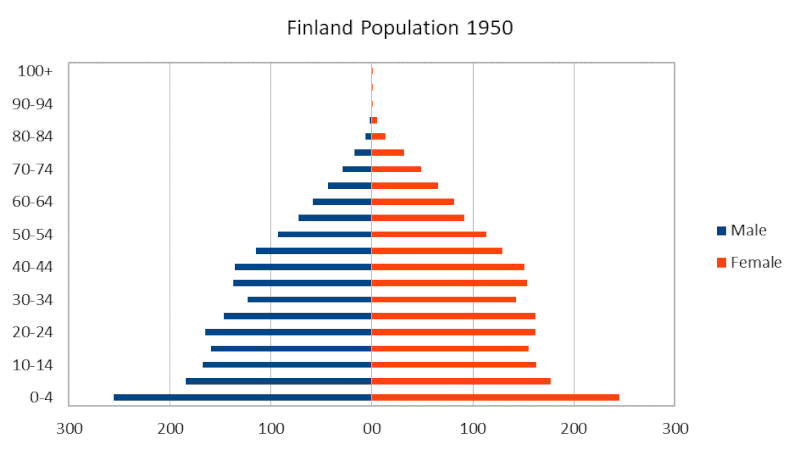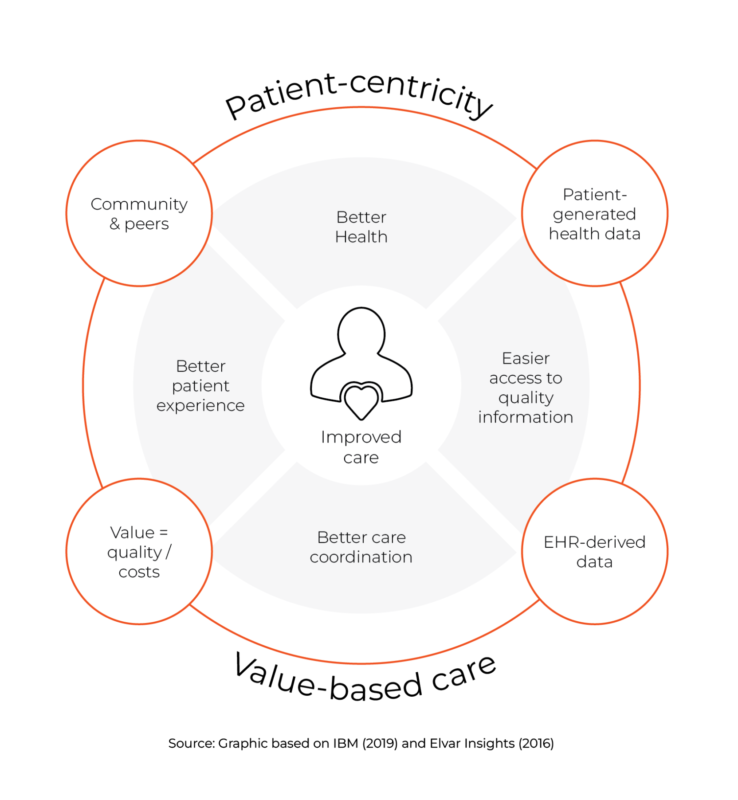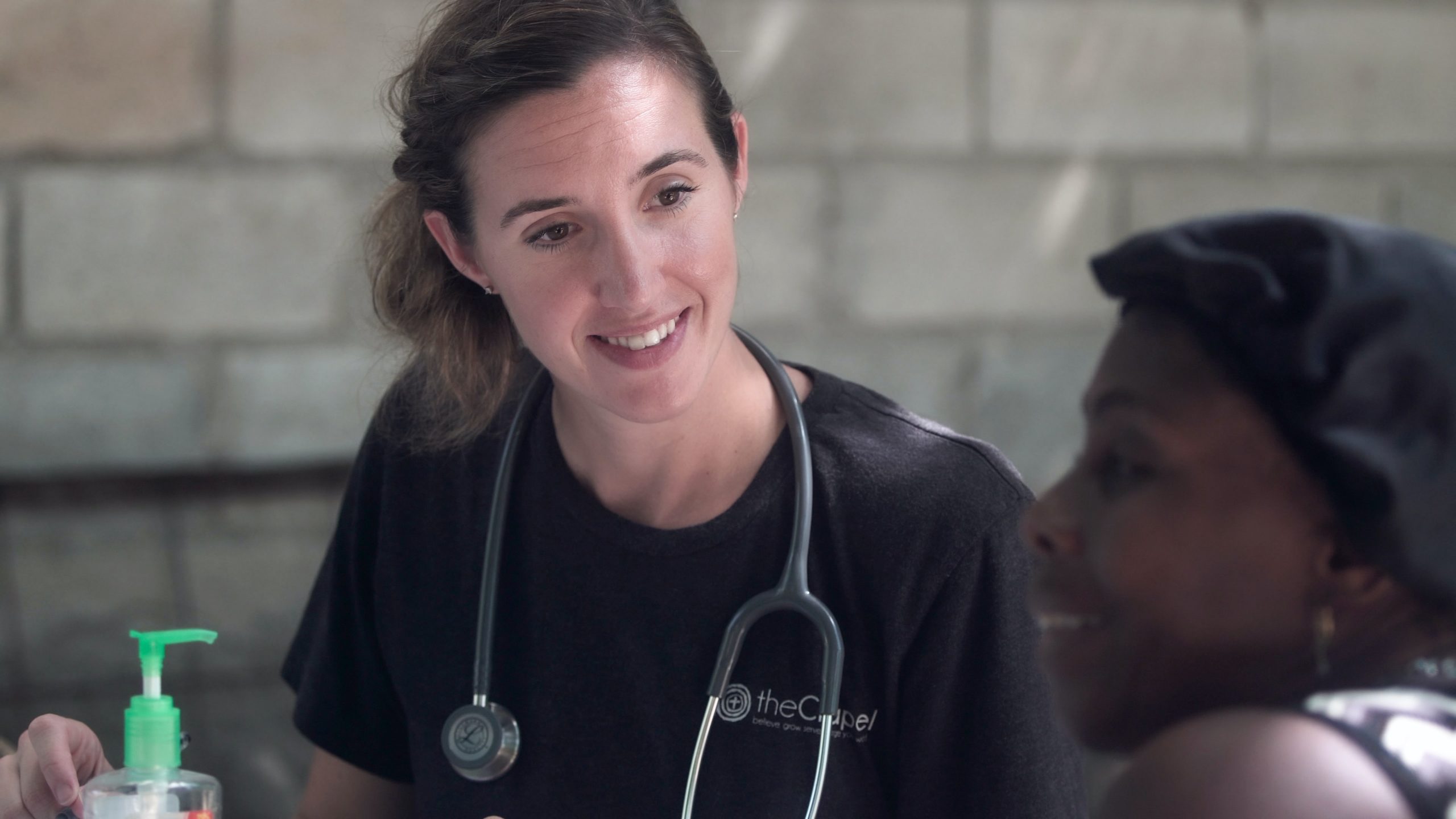When you get sick, in most cases you (or your insurance) pays for your healthcare based on the quantity of treatment you get. What if we could turn that upside down and instead pay based on how you recover? That’s value-based healthcare in a nutshell, and it’s a model that is gaining traction in Finland in the public and private sectors alike and shifting the value chains in the healthcare industry.
Disruption in healthcare comes from several directions – technology, patient expectations, and resource scarcity
As we outlined in the Future Trajectories of Healthcare study, healthcare is going through massive transformations, many of them positive – with a few major challenges. Technological advancement and the digitalization of care are unlocking new ways to understand illnesses and provide highly individualized treatment, but raise a minefield of concerns about data security and ownership. Patient expectations are evolving and care practices are shifting towards patient-centricity, promising more effectiveness, but with both costs and a learning curve associated.
But most critically, demographic changes are causing a shift in the resources that supply both the public and private sectors.
The healthcare system in Finland, as in most social democracies, is built on fundamental principles of taking care of everyone in society and ensuring equal access to essential services. Things like healthcare and education are considered a basic right.
Many times, this system is also enabled by the “age pyramid”. The idea is that the younger part of the population – the base of the pyramid – are working, paying taxes, and fueling the system, and thus supporting the elderly, retired people at the top of the pyramid, who are often in most need of care.
This funding model is successful when a lot of money can be invested per citizen. But in the near future, when there are more retirees and fewer young people in the workforce, the pyramid will invert. As a result, the resources put into healthcare will not be enough to fulfill future needs.

A new concept has the potential to increase the sustainability of the healthcare system as we know it
This concept is often referred to as value-based healthcare, and it means healthcare providers – including hospitals, doctors, and pharmaceutical companies, for example – are paid for the outcome of the treatment they administer, rather than the treatment itself. It incentivizes making patients well rather than just treating them. “Value” is measured as the improvement in a patient’s health outcomes compared to the cost of achieving that improvement.
Value-based healthcare is dramatically different from the existing pay-for-care models, and requires a different way to measure effectiveness, allocate resources and treatment outcomes. The upside, however, is that the overall costs of healthcare can go down significantly over time while still maintaining a high standard of care – and patients’ overall health is put in the center.
This reduction in overall costs is sorely needed as the population pyramid continues to invert. While lowering healthcare costs doesn’t inherently solve the problems caused by an aging population, it does pave the way for more sustainable ways of operating and a healthier population. Managing chronic diseases or conditions such as cancer, diabetes, or obesity can be costly and time-consuming for healthcare systems, and some more rare diseases even more so. Value-based care models focus on helping patients recover from illnesses and injuries more quickly and avoid chronic disease in the first place.
Healthcare providers ultimately benefit from value-based care by being able to focus less on chronic disease management and more on prevention-based services. Suppliers such as pharmaceutical companies benefit from being able to align their products and services with positive patient outcomes and reduced cost, which are crucial selling propositions as the aging population requires more care and treatment.

How is value-based care developing in Finland, the Nordic country on the cutting edge of healthcare?
Finland is known globally for its high-quality healthcare system. According to a recent study conducted by Vertical, the value-based approach in healthcare is progressively gaining more traction in Finland. Increasing the number of value-based and innovative public procurement processes has also been highlighted as a distinct action point in the Finnish Government’s health sector growth strategy’s roadmap for 2020–2023.
“Value-based medicine is becoming a priority, and the next ten years might become its decade.”
Riitta Aejmelaeus
Budget Counselor, MD, PhD, specialist in Geriatrics, MBA
Ministry of Finance
Featured in the Future Trajectories of Healthcare study by Vertical, 2022
As in many other countries, the development towards value-based care is inevitable. However, concrete actions are needed to begin this shift now, rather than deploying corrective actions later.
In our study, we identified and outlined a number of roadblocks that need to be addressed, including:
- A lack of nationally recognised evidence-based metrics for evaluating the impact of value-based treatments
- Budgeting and procurement practises being based on cost reduction rather than impact
- Slow pickup by the public sector of digital solutions that enable value-based treatments, as well as significant fragmentation of digital services
These, while likely not being unique for Finland, are some of the central roadblocks for moving towards value-based care.
What we can clearly see on the market is that the evolution of the healthcare system is too complex and fragmented for any individual organization to solve alone. Collaboration between all stakeholders is the only way to drive radical improvement, and a value-based system will end up lowering healthcare costs in the long run by putting preventative measures first. At Vertical, we have started working on these transformations with our partners across the healthcare ecosystem.
How can you make the change?
Are you part of a healthcare or pharmaceutical organization and wondering how to approach this change? At Vertical, we have been part of developing value-adding services that support holistic care of patients as well as building and implementing new ways of working that enable further transformation – and we would be happy to discuss your challenges with you. Email us at info@vertical.vc or get in touch with Kenneth below!

